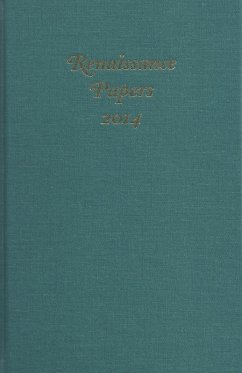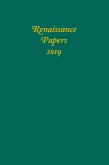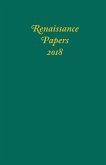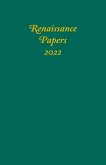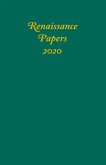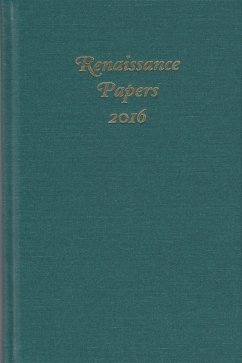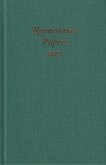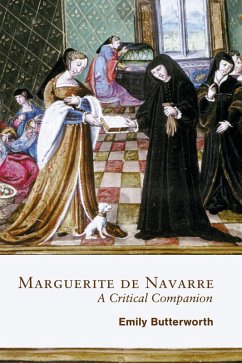Annual volume of the best essays submitted to the Southeastern Renaissance Conference, this year with an emphasis on English drama, particularly Jonson and Marlowe.
Renaissance Papers collects the best scholarly essays submitted each year to the Southeastern Renaissance Conference. The 2014 volume opens and closes with essays on historically based explorations of identity: the first onthe circle of Jane Scroop in Skelton's Philip Sparrow, and the last on dogs and horses as symbols of national identity in early modern England. The heart of this year's journal is English drama, especially Jonson and Marlowe: there are essays on Puritan logic in Jonson's Bartholomew Fair; grotesque sex in Jonson's Volpone; the role of anti-Catholicism in the creation of Marlowe's Dr. Faustus; and the relationship between puppetry and the Faust legend. Marlowe and Jonson also surface in two reconsiderations of their non-dramatic works; first an essay on Ovidian resonances in Marlowe's Hero and Leander, and second a reflection on Spenserian echoesin Jonson's Epode. The next essay shifts to the poetics of religious literature, arguing for clothing as an important metaphor for renewal in Herbert's The Temple, and the penultimate essay addresses imaginative resources in the Martin Marprelate pamphlets.
Contributors: William Coulter, Philip Goldfarb, Chris Hill, Joanna Kucinski, Pamela Macfie, Sara Mayo, Barry Shelton, Emily Stockard, Lisa Ulevich, Emma Annette Wilson.
The journal is edited by Jim Pearce of North Carolina Central University and Ward Risvold of the University of Georgia.
Renaissance Papers collects the best scholarly essays submitted each year to the Southeastern Renaissance Conference. The 2014 volume opens and closes with essays on historically based explorations of identity: the first onthe circle of Jane Scroop in Skelton's Philip Sparrow, and the last on dogs and horses as symbols of national identity in early modern England. The heart of this year's journal is English drama, especially Jonson and Marlowe: there are essays on Puritan logic in Jonson's Bartholomew Fair; grotesque sex in Jonson's Volpone; the role of anti-Catholicism in the creation of Marlowe's Dr. Faustus; and the relationship between puppetry and the Faust legend. Marlowe and Jonson also surface in two reconsiderations of their non-dramatic works; first an essay on Ovidian resonances in Marlowe's Hero and Leander, and second a reflection on Spenserian echoesin Jonson's Epode. The next essay shifts to the poetics of religious literature, arguing for clothing as an important metaphor for renewal in Herbert's The Temple, and the penultimate essay addresses imaginative resources in the Martin Marprelate pamphlets.
Contributors: William Coulter, Philip Goldfarb, Chris Hill, Joanna Kucinski, Pamela Macfie, Sara Mayo, Barry Shelton, Emily Stockard, Lisa Ulevich, Emma Annette Wilson.
The journal is edited by Jim Pearce of North Carolina Central University and Ward Risvold of the University of Georgia.
Dieser Download kann aus rechtlichen Gründen nur mit Rechnungsadresse in A, D ausgeliefert werden.

